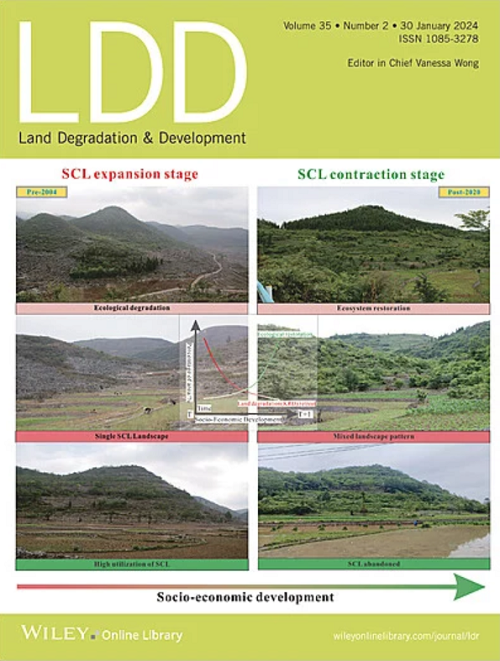Land Resources, Green Energy, and Food Production: Perspective of Middle-Income Economies
IF 3.6
2区 农林科学
Q2 ENVIRONMENTAL SCIENCES
引用次数: 0
Abstract
In the era of COP27, both the industrialized and developing economies aim to tackle climate-changing issues. Yet, the complex nexus of land resources, green energy, and food production remains a hot topic for policymakers and scholars. There is a significant literature gap since the existing literature lacks empirical evidence concerning the stated nexus. To bridge the gap, the present study analyzes the influence of land resources (forest, natural gas, and mineral resources) and green energy on the food production of the aggregate middle-income economies during 1985–2022. This study highlights the persistent structural breaks in stationarity testing. Still, the equilibrium relationship persists during the study period. Employing the least square with structural breaks approach, this study found that economic growth has a heterogeneous influence on food production, which is negative in the pre-structural break period and positive in the post-structural break period. Besides, forest resources are the significant drivers of the region's food production. However, mineral and natural gas resources are significantly reducing the food production of middle-income economies. Green energy has no significant role in the food production of the selected region. A series of robustness and causality tests verify the robustness of the results. Based on the results, this study recommends the effective management of land resources and further investment in green energy projects and research and development.求助全文
约1分钟内获得全文
求助全文
来源期刊

Land Degradation & Development
农林科学-环境科学
CiteScore
7.70
自引率
8.50%
发文量
379
审稿时长
5.5 months
期刊介绍:
Land Degradation & Development is an international journal which seeks to promote rational study of the recognition, monitoring, control and rehabilitation of degradation in terrestrial environments. The journal focuses on:
- what land degradation is;
- what causes land degradation;
- the impacts of land degradation
- the scale of land degradation;
- the history, current status or future trends of land degradation;
- avoidance, mitigation and control of land degradation;
- remedial actions to rehabilitate or restore degraded land;
- sustainable land management.
 求助内容:
求助内容: 应助结果提醒方式:
应助结果提醒方式:


